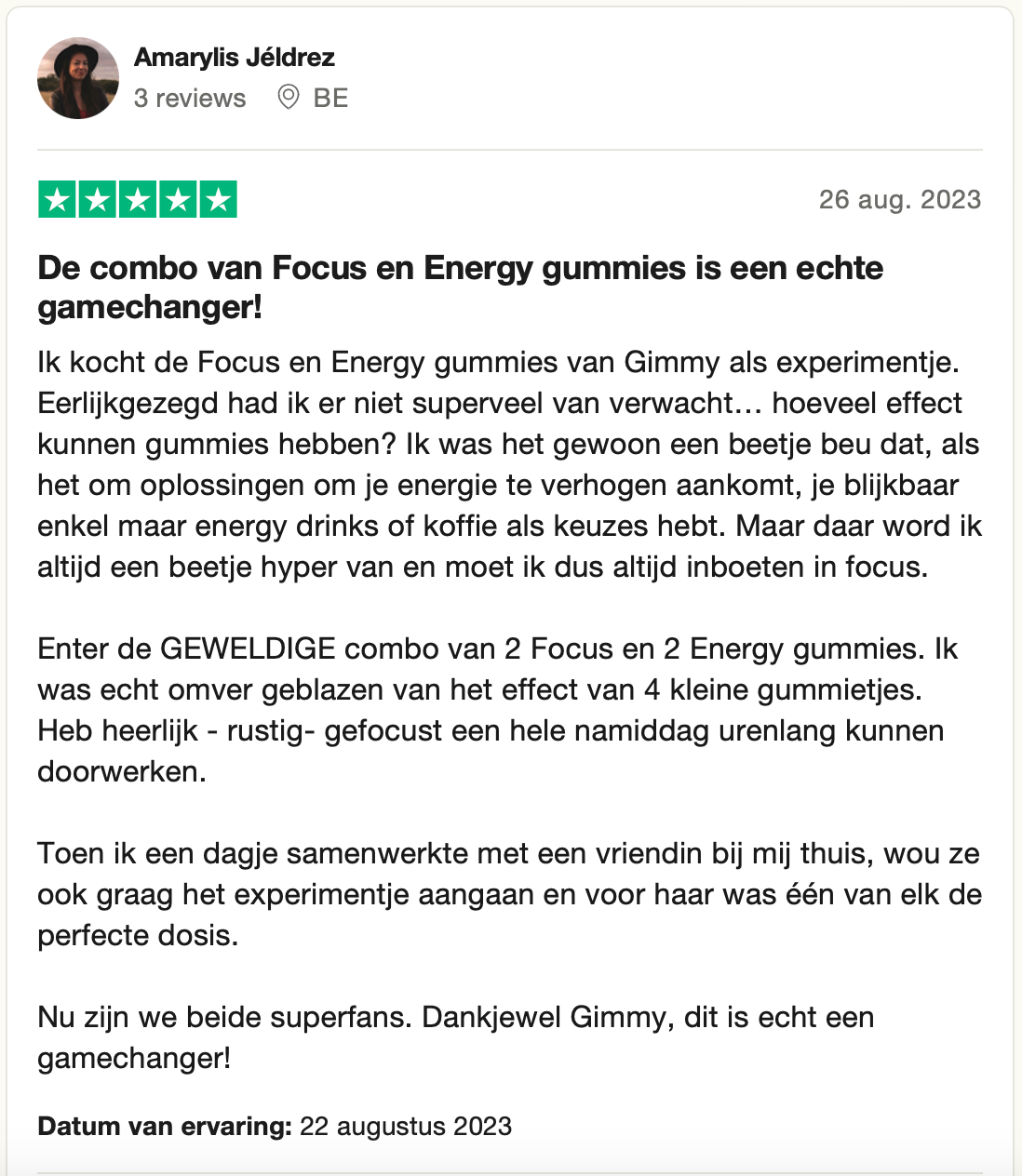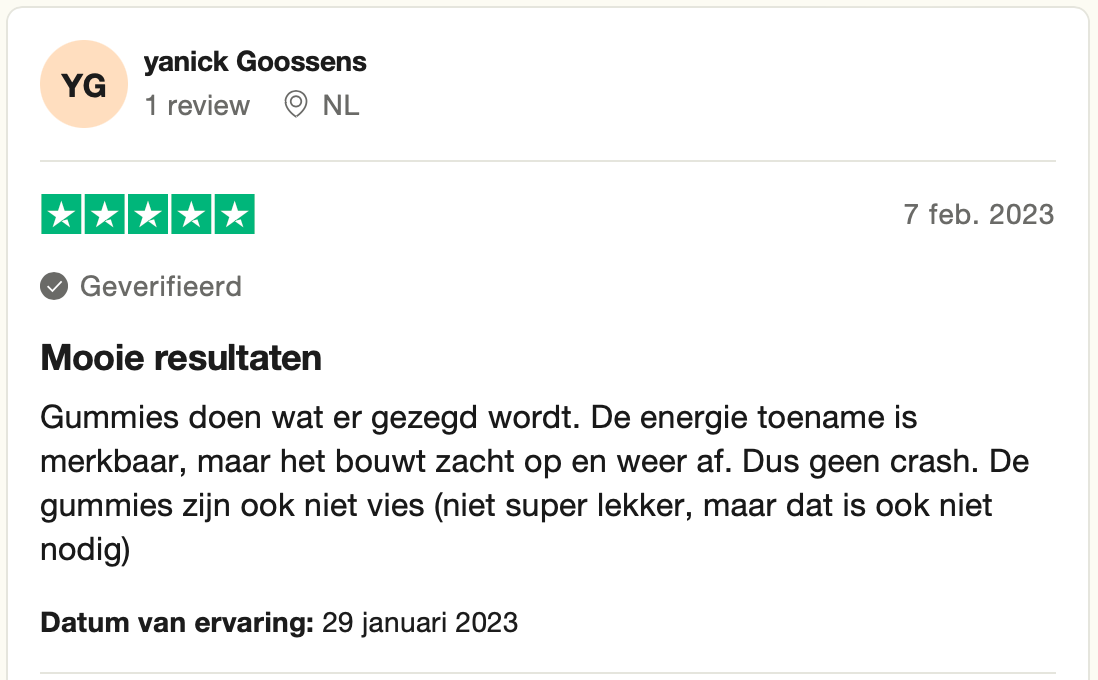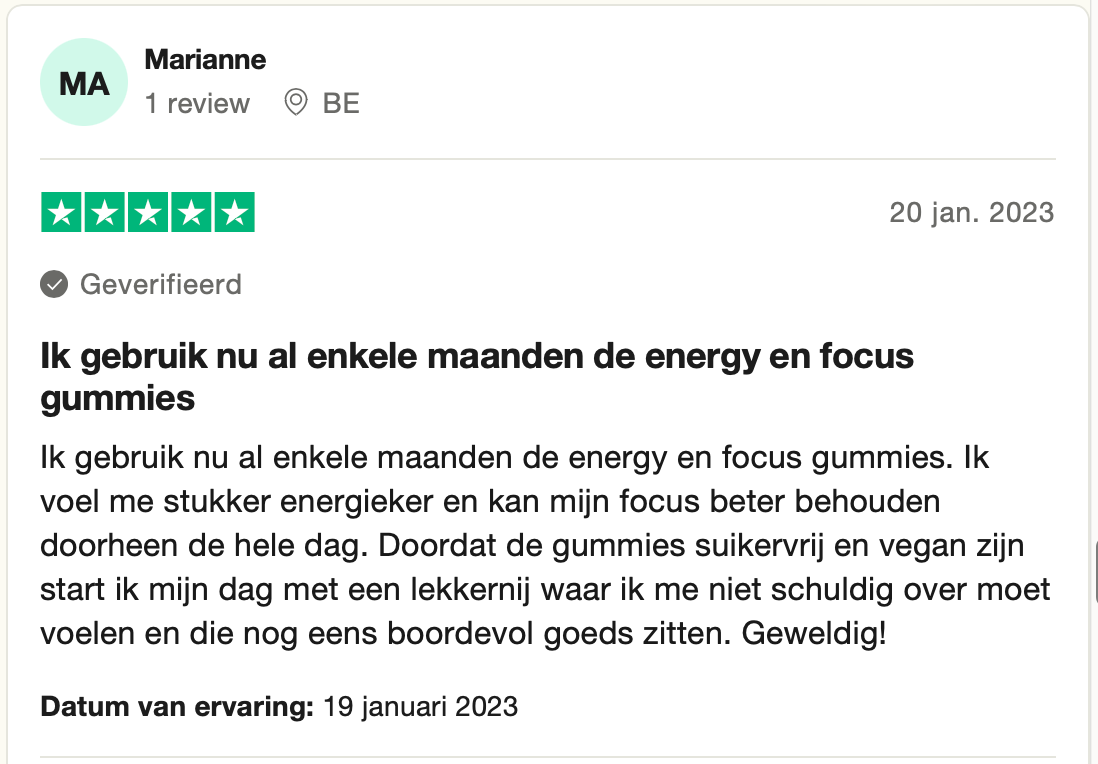Low energy? Take a look at your eating habits
door Floris Biesemans op Feb 20, 2023
Have you ever wondered why some days you wake up full of energy while on other days you can barely get out of bed? The answer may have to do with your eating habits. What you eat, when you eat and how much you eat can all affect your energy levels throughout the day. In this blog, we will explore how good and bad eating habits can affect your energy, and provide some practical tips to improve your energy levels throughout the day. Whether you're looking for ways to handle your daily tasks more easily or want to improve your athletic performance, this article will help you better understand how nutrition affects your energy.
Moreover, an unhealthy diet can lead to overweight and obesity, which can also lead to a lack of energy. Too much body weight can make breathing difficult, making it harder to get enough oxygen in, which can lead to fatigue.
Skipping meals regularly or eating too little can also lead to a lack of energy. This is because your body is not getting enough nutrients to function optimally. In addition, a lack of food can cause your body to use fat reserves for energy, which can lead to fatigue and exhaustion in the long run.
Hopefully by now it's a little clearer to you what you should and shouldn't eat to keep your energy levels on point. Do you still sometimes suffer from fatigue? Then read the blog "Fatigue, what can you do about being tired?".
Poor eating habits
Poor eating habits can have a negative impact on your energy levels. If you regularly eat too much sugar, fat and processed foods, it can lead to energy dips and fatigue throughout the day. This is because these foods raise your blood sugar levels quickly, giving you a brief energy boost, but then can quickly experience another energy dip.Moreover, an unhealthy diet can lead to overweight and obesity, which can also lead to a lack of energy. Too much body weight can make breathing difficult, making it harder to get enough oxygen in, which can lead to fatigue.
Skipping meals regularly or eating too little can also lead to a lack of energy. This is because your body is not getting enough nutrients to function optimally. In addition, a lack of food can cause your body to use fat reserves for energy, which can lead to fatigue and exhaustion in the long run.
So which foods are best left out?
- Sugary foods: Sugary foods, such as soda, candy, cookies and pastries, can raise your blood sugar levels quickly, but often cause an energy dip afterwards.
- Processed foods: Processed foods, such as fast food, potato chips, and ready-to-eat meals, are often high in salt, sugar, and unhealthy fats. These foods are low in nutrients and can lead to obesity and fatigue.
- White carbohydrates: White carbohydrates, such as white bread, pasta, and white rice, are low in fiber and nutrients. These foods break down quickly and can raise your blood sugar levels quickly, which in turn can lead to energy dips.
- Caffeine and alcohol: While caffeine and alcohol in small amounts are not necessarily harmful, too much caffeine and alcohol can lead to dehydration and fatigue.
Energy-rich foods
Enough things listed that you should not eat too much of. Fortunately, on the other hand, there are many healthy products that do provide you with a huge amount of energy to still have enough energy at the end of the day.- Whole grain products: Whole grain products, such as whole wheat bread, whole wheat pasta and brown rice, contain fiber and complex carbohydrates that are broken down slowly. This causes your blood sugar to rise more slowly, helping you maintain stable energy levels for longer.
- Oily fish: Oily fish, such as salmon, herring and mackerel, contain omega-3 fatty acids that can help reduce inflammation and improve brain function, which can lead to improved energy levels.
- Nuts and seeds: Nuts and seeds contain healthy fats, protein and fiber, which are broken down slowly, thus providing stable energy levels.
- Fruits and vegetables: Fruits and vegetables are high in fiber, vitamins and minerals that are important for healthy energy levels. They help stabilize blood sugar levels and prevent peaks and valleys in your energy levels.
- Protein-rich foods: Protein-rich foods, such as eggs, chicken, beans and tofu, can help stabilize blood sugar levels and provide long-lasting energy.
Hopefully by now it's a little clearer to you what you should and shouldn't eat to keep your energy levels on point. Do you still sometimes suffer from fatigue? Then read the blog "Fatigue, what can you do about being tired?".

Onze tevreden klanten


























